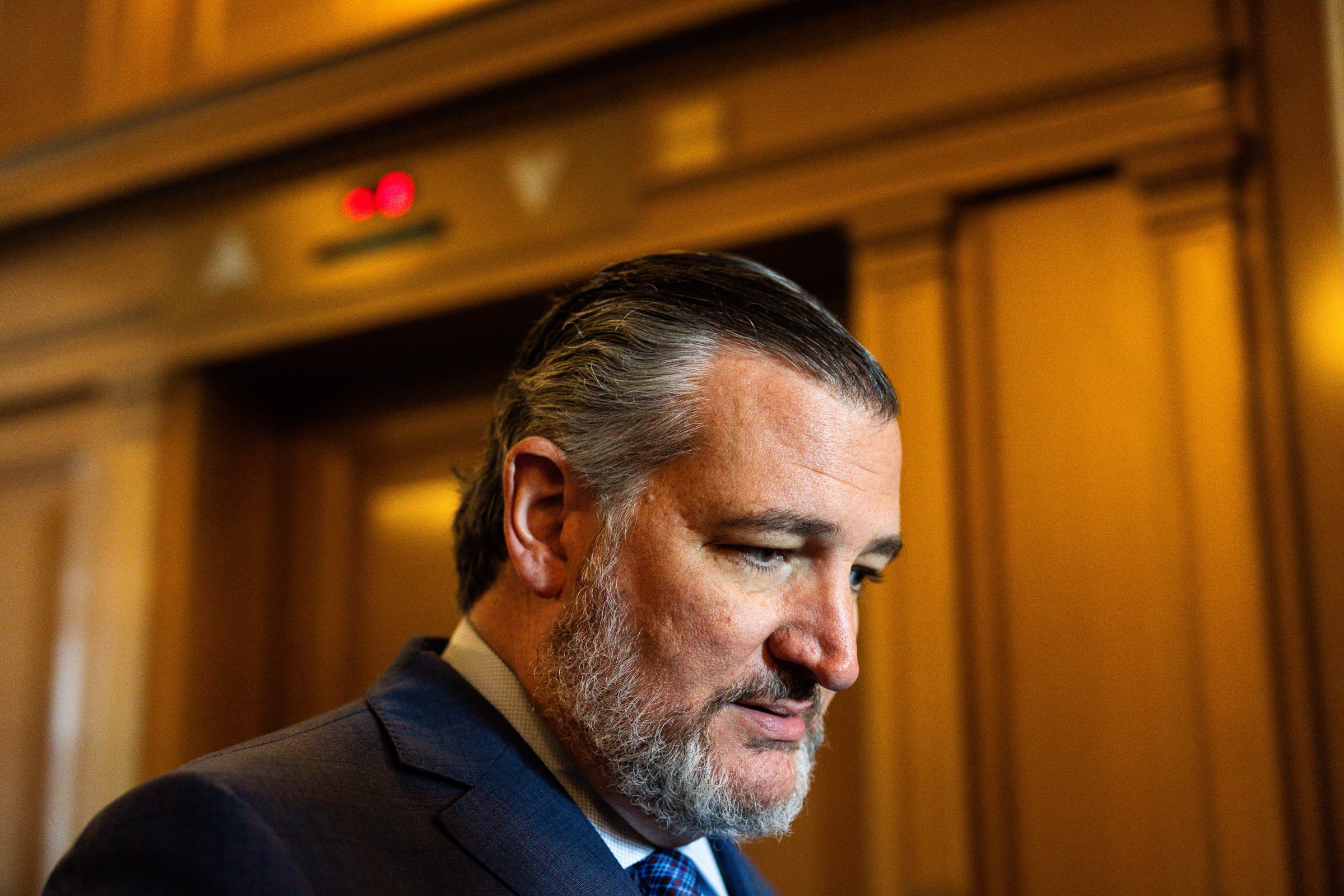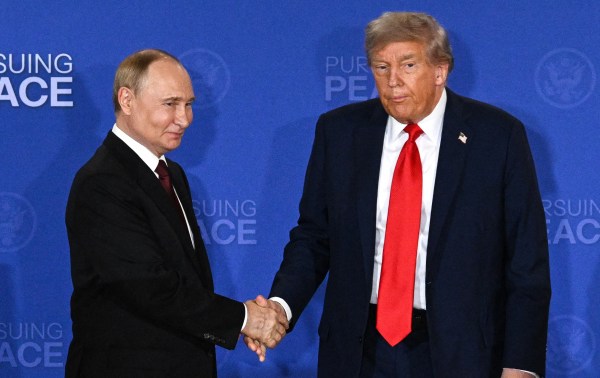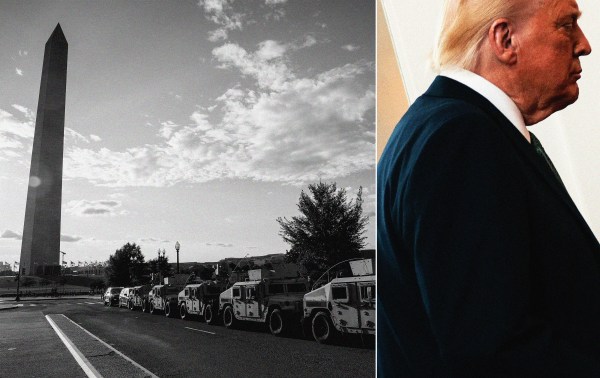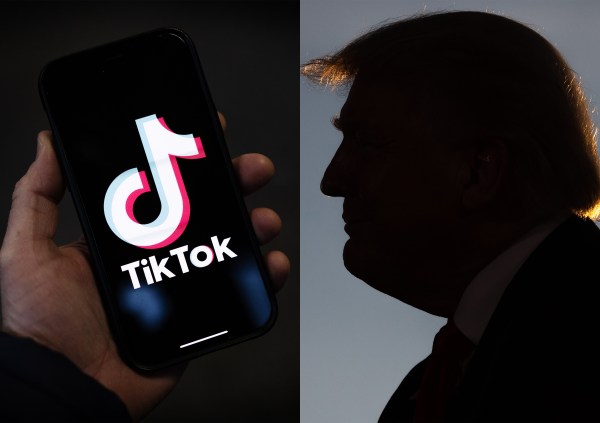Competition for the top spot is fierce, but the very worst of Donald Trump’s enablers and sycophants aren’t the rage-addled, rustic, resentment junkies but such polished epitomes of servility as Sen. Ted Cruz, who insists that his highest political calling is the defense and fortification of the Constitution, and who—being one of those anti-elitist sons of the Texas caliche who learned his ABCs at Princeton and Harvard Law—knows full well that the president’s contempt for the Constitution is exceeded only by his ignorance of it.
Here is Trump on social media, serving up the baloney pretext for his next attempt to nullify an election:
Remember, the States are merely an “agent” for the Federal Government in counting and tabulating the votes. They must do what the Federal Government, as represented by the President of the United States, tells them, FOR THE GOOD OF OUR COUNTRY, to do.
This is, in the familiar Trump style, a motley bolus of stupidity and dishonesty. The Constitution says, in fact, precisely the opposite: “The Times, Places and Manner of holding Elections for Senators and Representatives, shall be prescribed in each State by the Legislature thereof.” Where there is a federal role, it belongs to the lawmaking branch, not to the president: “[B]ut the Congress may at any time by Law make or alter such Regulations, except as to the Places of chusing Senators.” I do like that anachronistic “chusing”—more than I like many of the laws and regulations that Congress has written over the years with regard to voting.
There are a few Americans who generally must do what the president, “FOR THE GOOD OF THE COUNTRY,” tells them to do. They wear uniforms, and we thank them for their service. No one else in this republic of free men and free women is, in fact, at the president’s command. Even the president’s direct subordinates have the option of resignation if asked to carry out an order that is illegal or immoral, though it is a shame how few have done that over Trump’s time in office.
The states aren’t people, and, in spite of an ancient and confused American rhetorical tradition holding otherwise, states do not have “rights.” Citizens have rights, states have powers. Like our indolent Congress, they tend to use those powers less often and less vigorously than they should, preferring to offload hard things—or politically unpopular things—onto the federal government when doing so is convenient.
States have the constitutional power to run elections, which they sometimes do poorly, as with the mail-in ballot dispute in Pennsylvania in 2020 that went as far as the Supreme Court, undermining public confidence in the impartiality of election managers. (Incompetent and corrupt elections are an unhappy fact of life in Pennsylvania.) In the context of our constitutional architecture, the power to do something entails the power to do it poorly—or, at least, to do it in a way that does not meet with the approval of the president, who is the chief executive of one branch of the federal government and not the god-emperor Trump imagines himself to be.
In fact, as Cruz no doubt heard many times at Harvard Law, insisting that the states act as its “agents” is one of the things the federal government is prohibited from doing. Federal law may supersede state law in cases of conflict, but the federal government cannot command the states to enforce federal law, or to do—anything, really. The United States of America is a federal union of sovereign states that have delegated certain enumerated powers related to their common interests—war-making, international trade, relations among the states themselves—to the federal government. That is why, for instance, “sanctuary” states and cities present no constitutional problem even if they are idiotic from a policy perspective—the federal government may enforce the law, but it cannot “commandeer” (the legal term of art) the state governments to do its work. The existence of federal election law is not an open-ended mandate for the president to command the states to do his bidding.
Someone—maybe Ted Cruz?—should explain that to the president.
I pick on Cruz here because I want to put him to some good use, mainly for the sake of the country but also for his own. Cruz enjoyed a truly meteoric rise in Republican politics: In less than a decade, he went from being a well-regarded lawyer in private practice to a serious contender for the Republican presidential nomination. Funny thing about meteors: They seem to be flying, but they are falling.
Cruz was an intellectually serious politician of the kind who would quote Hayek and reference Milton Friedman off-the-cuff in private conversation until he discovered—and this is a thing with Texas politicians—that there was more juice to be had from pretending to be the good ol’ boy that he is not than in simply being the Ivy League lawyer he is. Cruz’s current position in American public life is that of a piteous and contemptible figure. He may end up in a dignified retirement like George W. Bush or he may end up becoming a psychedelic-drug salesman like Rick Perry, but, for the moment, he is still a senator caught between the fringeward push of his radicalizing party and the centerward pull of his state’s urbanizing electorate.
Cruz is (or should be) smart enough to have figured out by now that he is never going to be president, and he ought to allow himself to be liberated by this and take on a new role—one that the genuine Ted Cruz, if there is anything left of him inside the chrysalis of grotesque opportunism and self-degradation in which he has enveloped himself, would be well-suited to undertake: defending the Constitution and the American order from a sustained assault that is coming from within his own party.
It would not take very much: “No, Mr. President, you may not willy-nilly create a new national sales-tax regime with rates based on how you’re feeling that day, even if you call it a tariff; no, you may not federalize the Philadelphia police department or deploy troops in U.S. cities based on whatever phony emergency pretext occurs to you in between social media posts; no, the states are not your ‘agents,’ and they most certainly do not have to do ‘whatever the president of the United States tells them’ to do, even if you put ‘FOR THE GOOD OF OUR COUNTRY’ in capital letters. And if you refuse to honor the constitutional limits on your office, then you can be removed from that office—with my vote, if necessary, though I would regret it and would probably lose my Senate seat as a result. But there are things more important than winning the next election.”
No, I do not think Cruz has it in him.
But he is starting to reach the stage of life when, to borrow David Brooks’ formulation, it is time to stop thinking about one’s résumé and start thinking about one’s eulogy. Cruz’s opportunities to make a more substantive contribution to American political life dwindle by the day.
The meteor blazes across the night sky, but it is quickly gone as the darkness reasserts itself. No man knoweth the hour.










Please note that we at The Dispatch hold ourselves, our work, and our commenters to a higher standard than other places on the internet. We welcome comments that foster genuine debate or discussion—including comments critical of us or our work—but responses that include ad hominem attacks on fellow Dispatch members or are intended to stoke fear and anger may be moderated.
With your membership, you only have the ability to comment on The Morning Dispatch articles. Consider upgrading to join the conversation everywhere.